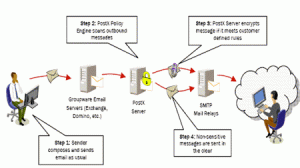Mass-Email Servers and SMTP Servers ¬— Which One is Right for You?
What happens when your perfectly-crafted newsletters, email ads and promotions end up in your clients’ spam; or worse, never make it to their addresses?
It’s the 21st century and competition is cutthroat. Obstacles like this set you back. Although it’s been around for a while, email marketing remains one of many indispensable agency outreach resources available to brands to improve leads and build strong customer bases. To stay competitive, it is necessary to do it right. You’ll need the right SMTP server for this.
Why The Right Smtp Server Is Important
SMTP – Simple Mail Transfer Protocol – is a set of commands which authenticate and direct the transfer of emails. An SMTP server, therefore, is the mailperson of the digital age. It fetches the email from your end, sorts the recipient’s address, and delivers it to them. Without it, your emails are unlikely to reach their destinations.
Your SMTP server (also called email server) has an address which often depends on your email client. Gmail’s address, for example, is smtp.gmail.com. This is where your email is sent before it is transferred to the receiver.
Traditional SMTP servers such as those provided by Gmail and Yahoo are inefficient for handling the email needs of businesses and brands with large subscribers or the potential for such growth. In fact, their policies discourage automation and mass-emailing by placing tight restrictions on volume, triggering spam filters, and preventing the emails from reaching their destination. As a consequence, mass-email servers are better-suited to meet these needs.
Choosing The Right Server
When it comes to choosing which mass-email server to use, the answer is often at the intersection between one’s needs and budget. Generally, you have the choice between free SMTP servers and paying for a dedicated SMTP server.
Free SMTP Servers
Personal brands, websites and small businesses with low email handling needs may not need to pay for dedicated SMTP servers. A number of mass-email service providers offer free but professional SMTP servers suited to cater to this demographic. These servers provide more flexibility and email delivery rates than traditional email clients. They allow businesses yet to scale up to cut costs while still improving leads and maintaining transactional communication with customers.
Free SMTP servers have limits on the volume of emails which can be sent. Many services, however, provide the option of upgrading to keep up with growth. Top free SMTP servers include SendinBlue, Amazon SES, and SendGrid.
Dedicated SMTP Servers
Dedicated SMTP servers are essential for businesses and brands which run massive email campaigns or have an extensive database of clients. They speed up email delivery and ensure messages get through spam filters to reach recipients’ inboxes.
A dedicated SMTP server helps businesses efficiently manage transactional information (invoices, receipts, etc) with clients, personalise interactions, and perform data-driven analysis of client behaviour and the effectiveness of campaign strategies. They are also easy to integrate with business applications and have no limits on the volume of emails which can be sent daily.
Purchases of dedicated SMTP servers come with customer support, access to mailing software, and freedom to operate multiple email addresses. Users can setup their own Sender Policy Framework (SPF), Domain Name System (DNS), and Domain Keys themselves.
SendinBlue, SendGrid, and Mailgun are strong contenders with very high email deliverability.
What To Look Out For When Selecting An Smtp Server?
There are so many SMTP servers available and choosing from the pool can be difficult. Comparing the options using these metrics can help you narrow your choices.
Scalability: Poor scalability frustrates growth and causes problems down the road. It is important that whatever server you choose can be adjusted to meet the needs of your business or brand as you grow.
Email Deliverability: Ensure your SMTP server has a proven high deliverability rate so you’re assured all your emails reach their audience. It is easy to find this on independent review sites.
Message Metrics: Message statistical data such as opening percentages, click percentages, and bounce rates are not provided by all SMTP servers. This can harm your business. It’s useful to stick to servers with this feature so you can evaluate performance and measure return on investment.
Data Security: Your SMTP provider should have secure server infrastructures, policies, and covering by federal laws which ensure protection of your data from hackers and unauthorized requests.
Price: Comparing pricing of plans before committing, even if you’re opting for a free server, is essential in deciding which platform is most-suited to meet your needs now and later.
So Which One Is Right For You?
There is no one-size-fits-all ‘right’ SMTP server. Which SMTP server is right for you will depend on your purpose for it, how much control you need, and your projections for the future. Ultimately, it is best to go for the most cost-effective option which meets your current needs but also leaves room to accommodate your growth.








